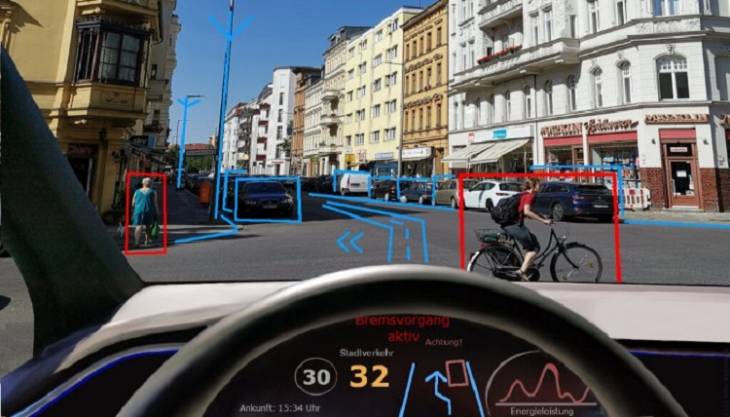Major Industries Artificial Intelligence Is Revolutionizing

Self-driving AI vehicle. Photo: Nelson Moura
There’s no denying that technology has been the key to evolution for almost every industry.
From transport to gaming, sports and healthcare, improvements to processes and capabilities have been attributed to rapidly innovating technology. This is particularly prominent in the field of artificial intelligence (AI).
What was once reserved for sci-fi movies is now actively a part of our everyday lives, and it’s set to pave the future – perhaps autonomously!
In this article, we take a look at how AI is set to ignite several key industries.
1. Transport
While we are still a few steps away from fully autonomous vehicles becoming an everyday part of our lives, AI has already woven its way into the transport industry. From drones taking off with parcels to deliver to traffic management, the unseen eye of artificial intelligence is already keeping a keen watch over the safety of drivers.
Some outlets have suggested that, while autonomous vehicles are already a present-day perk, fully autonomous driving may come to fruition within the next ten years thanks to AI. With cars able to drive themselves, we could see a massive shake-up across several areas at once – would we even need to own cars if one can pull up and pick us up on command?
For those of us who already go car-free, AI is revolutionising public transport and will continue to do so. Advancements in rail connectivity have seen the average train journey go from a simple affair of sitting at your seat reading the newspaper on the way to work to being able to work remotely as you make your way in – setting up a speedy travel office with train WiFi or ticking a few extra items off the home to-do list while you commute into work.
It’s not just passengers who are benefitting. Rail operators stand to benefit from AI improvements, especially when it comes to monitoring safety. AI technology will allow them to receive instant alerts of critical failures, keeping everything from passengers and staff to assets protected.
Whenever an incident is detected onboard, AI technology will generate automatic alerts so that operators can respond faster than ever before.
2. Sports
AI has upgraded the way we travel, and it’s also upgrading the way we move ourselves. Previously, AI has been used in the sports sector as a way to monitor and improve an athlete’s performance. Now, we’re seeing AI stepping onto the field in new and exciting ways – and, in some cases, quite literally too.
The Olympics has a long history of rapid technology adoption, and AI has been no different. From tracking big data to calculate the potential of athletes to delivering photo finishes, AI has been interwoven with the Games for many years.
More recently, we’ve even witnessed robots at the Olympic games shooting hoops! CUE5 stunned the world with its hyper-accuracy powered by artificial intelligence, shooting free throws and three-pointers before its captivated audience.
3. Gaming
AI is at home in real-life sports games and in the digital competitive field. Its presence in the video game industry is nothing new.
Back in 2008, players were stunned by the AI “Director” lurking behind the scenes of cooperative shooter Left 4 Dead, as the artificial intelligence monitored each player’s skills, in-game location, and even perceived stress levels before using the information to decide where to place enemies along a player’s path.
The industry has come a long way since then, arm-in-arm with AI’s ever-growing capabilities. Nowadays, the technology is able to make in-game characters “remember” encounters with players and adapt accordingly.
And research divisions of some of the world’s largest gaming companies are actively seeking to utilize AI to create characters that “will mimic human players. To some extent, they will think.”
In Conclusion
Across sectors, AI is shaping the present in preparation for a more efficient, safer, and exciting future. In fact, AI might very well become the next everyday innovation that we all simply take for granted.





















